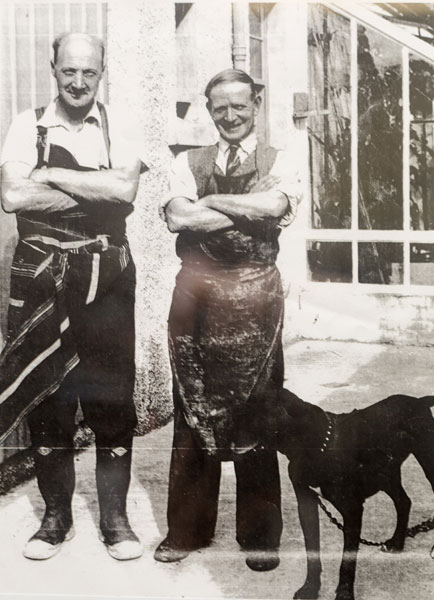 |
|
A 1955 photograph in front of the shop's haggis-making shed. [Photo/Agencies]
|
By a rough count, we had a few hundred lamb pieces in front of us. Squeamishness was going to get me nowhere. Gradually, MacGregor and I settled into a quiet rhythm, picking up lung after heart after lung, until there were none left to devein.
Once we had a nice mound of heart and lung bits, MacGregor mixed these in a trough with liquid left over from boiling the lamb parts, meal, dried onions and a variety of spices - the secret recipe. Then he ran the mixture through a giant processor twice, amassing several troughs of light brown pulp.
Now this was starting to look more like the haggis I'd eaten in Edinburgh.
When I'd first arrived in Scotland and inquired about haggis, a local friend, finding my enthusiasm for the stuff amusing, had said, "Do you like porridge? It's like a meat porridge." And it's true - while haggis at its inception was stuffed into sheep's stomachs and boiled, the versions you'll find in Scottish homes and restaurants these days tend to be a mealy mess of meat, spices, oats and onions all mixed together.
MacGregor now had a big, brown, porridgelike pile before him, which he fed into a machine that funneled haggis into plastic tubing of various sizes - one-, two- and several-pound versions. But there was a special casing for high-end proprietors. For a fancy hotel that had ordered a traditional haggis, he disappeared into his fridge for a moment, emerging with what looked like a sickly yellowish-white plastic bag.
"Feel it," he said, smiling. "This is a sheep's stomach."

